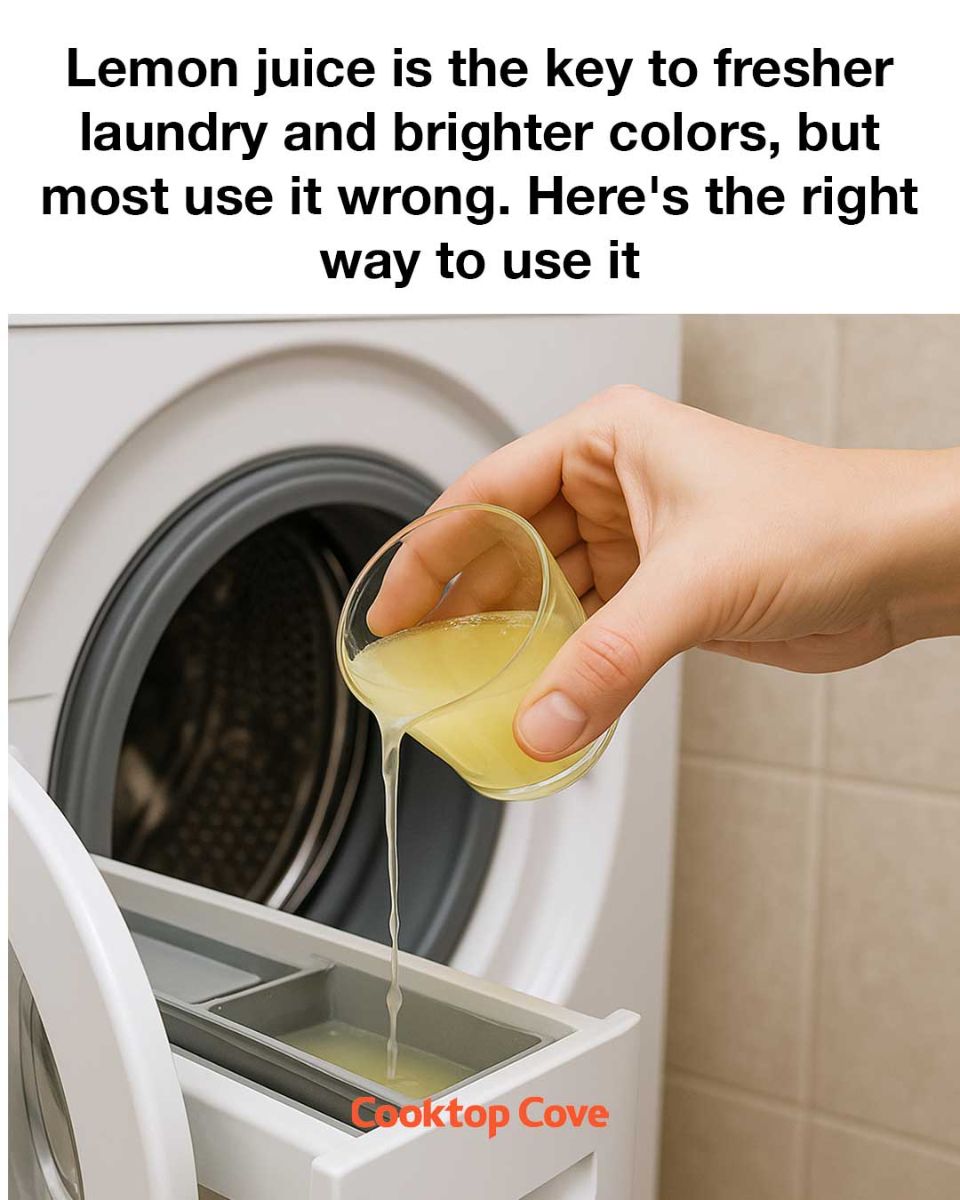Lemon juice is the key to fresher laundry and brighter colors, but most use it wrong. Here’s the right way to use it
In the quest for fresher laundry and brighter colors, many people turn to commercial products filled with chemicals. However, a natural and effective alternative might already be sitting in your kitchen: lemon juice. Known for its acidic properties and fresh scent, lemon juice can be a powerful ally in your laundry routine. But, like any tool, it must be used correctly to achieve the desired results.
Lemon juice is not just a culinary staple; it’s a versatile household cleaner and laundry enhancer. Its natural acidity can help break down stains, eliminate odors, and brighten colors, making it an eco-friendly and cost-effective choice. However, many people unknowingly misuse lemon juice in their laundry, leading to less-than-ideal results. This article will guide you through the science behind lemon juice in laundry, common mistakes, and the right way to use it for optimal freshness and color vibrancy.
1. The Science Behind Lemon Juice in Laundry
Lemon juice is rich in citric acid, which is a natural bleaching agent. The acidity of lemon juice, typically around a pH of 2, helps to break down stains and dissolve mineral deposits that can dull fabrics. This makes it particularly effective in combating yellowing and dinginess in white fabrics.
Additionally, lemon juice has antibacterial properties, which can help in reducing the bacteria that cause odors in fabrics. The natural oils in lemon also contribute to a fresh, pleasant scent. When used correctly, lemon juice can enhance the cleaning power of your regular detergent, making your laundry not only cleaner but also brighter and fresher.
2. Common Mistakes People Make with Lemon Juice
One common mistake is using too much lemon juice, which can lead to fabric damage. The acidity, while beneficial in small amounts, can weaken fibers if overused. Another mistake is applying lemon juice directly to colored fabrics without dilution, which can cause fading or discoloration.
Many people also fail to rinse thoroughly after using lemon juice, leaving residues that can attract dirt and cause fabrics to stiffen. It’s important to use lemon juice as a supplement to, not a replacement for, your regular detergent, ensuring it is properly rinsed out during the wash cycle.
3. How Lemon Juice Brightens Colors
Lemon juice helps to brighten colors by removing the mineral deposits and residues that can accumulate on fabrics over time. These deposits can cause colors to appear dull and lifeless. The citric acid in lemon juice breaks down these deposits, revealing the vibrant colors beneath.
When used correctly, lemon juice can enhance the natural brightness of fabrics without the harsh effects of chemical bleaches. This makes it an ideal choice for maintaining the vibrancy of colored clothing, especially when combined with a cold water wash to prevent fading.
4. The Right Way to Use Lemon Juice for Fresher Laundry
To use lemon juice effectively in your laundry, start by adding half a cup of lemon juice to your washing machine during the rinse cycle. This allows the citric acid to work on breaking down residues and brightening fabrics without interfering with the detergent’s cleaning action.
For stubborn stains, you can pre-treat by diluting lemon juice with water in a 1:1 ratio and applying it directly to the stain. Let it sit for about 10 minutes before washing as usual. Always ensure that the lemon juice is thoroughly rinsed out to prevent any potential damage to the fabric.
5. Step-by-Step Guide to Adding Lemon Juice to Your Wash
1. Measure half a cup of fresh lemon juice. Bottled lemon juice can also be used, but ensure it is pure and without added sugars or preservatives.
2. Add the lemon juice to the washing machine during the rinse cycle. This timing ensures that the citric acid works on brightening and deodorizing without interfering with the detergent.
3. For heavily soiled or stained items, pre-treat with a diluted lemon juice solution (equal parts water and lemon juice) applied directly to the fabric.
4. Run the wash cycle as usual, ensuring a thorough rinse to remove all traces of lemon juice.
5. Dry clothes as per fabric care instructions, preferably in the sun, which can enhance the brightening effect.
6. Benefits of Using Lemon Juice Over Commercial Products
Next Page

